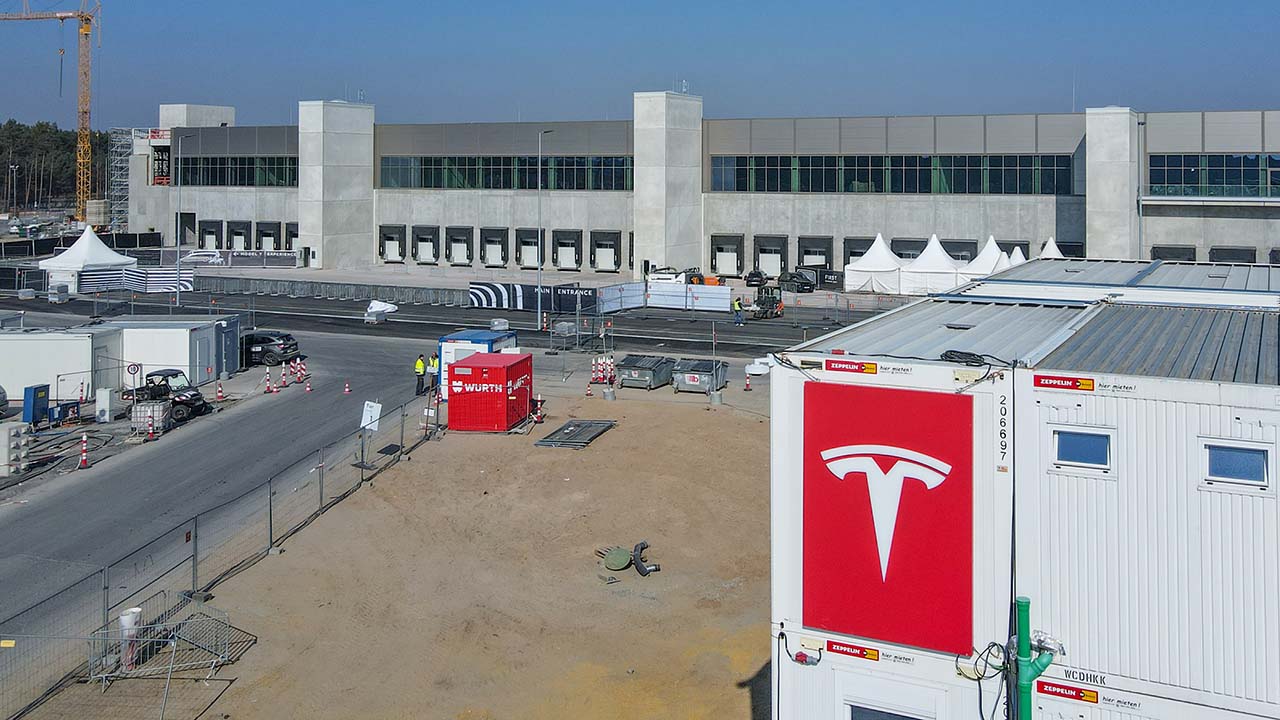
Tesla faces an unexpected setback as the inhabitants of Grünheide, a small town in Brandenburg, Germany, have decisively voted against the company’s ambitious plans to enlarge its already sprawling ‘gigafactory‘. The proposed expansion, which sought to extend the factory’s footprint by an additional 170 hectares and necessitated the clearance of about 100 hectares of pine forest, was aimed at bolstering the plant’s infrastructure. This included the development of new access routes, a freight depot, warehouses, and even a kindergarten for the children of employees, enhancing the site’s operational efficiency and employee amenities.
This vote came as a significant part of the local population, with a remarkable 76% voter turnout, voiced their concerns, resulting in 3,499 votes against the expansion compared to 1,882 in favor. While the referendum’s outcome does not possess legal binding, it serves as a crucial indicator of public sentiment, urging both Tesla and local decision-makers to reconsider their next steps carefully.
What Environmental Risks Does Tesla’s Expansion Pose?
Tesla’s expansion plans were not merely about scaling up production capabilities. They were intricately linked with the company’s commitment to sustainable energy and transportation solutions. The Grünheide factory, which commenced vehicle production in March 2022, represents Tesla’s pioneering venture into the European market, aiming to produce between 300,000 and 500,000 electric vehicles annually. However, there are key environmental challenges associated with the factory’s proposed expansion:
- Increased Water Usage: The projected increase in the factory’s water consumption to 1.8 million cubic meters per year raises alarms, especially given the region’s history of drought conditions.
- Impact on Local Groundwater Levels: The escalated water demand from the expansion threatens to deplete local groundwater levels, posing risks to both the natural ecosystem and the community’s water resources.
- Ecological Impact: The plan to clear approximately 100 hectares of pine forest to accommodate the expansion endangers local wildlife and disrupts the area’s ecological balance.
- Location in a Water Protection Zone: The expansion’s encroachment into a water protection zone amplifies concerns over potential drinking water contamination, underlining the critical need for environmentally responsible planning.
- Community and Environmentalist Opposition: Led by the ‘Grünheide Citizens’ Initiative’ and bolstered by environmental groups, there is significant opposition to the expansion, driven by the outlined environmental risks.
Will Tesla Redesign Its Expansion Plans?
The contentious vote has propelled Tesla and the Grünheide officials back to the drawing board, necessitating a reevaluation of the expansion strategy that balances industrial growth with environmental stewardship and community welfare. The mayor of Grünheide, along with Tesla executives, has expressed a commitment to addressing the community’s concerns, signaling a potential shift in the project’s direction to align more closely with local expectations and ecological considerations.
How Does Grünheide’s Vote Affect Tesla’s Presence in Europe?
This local dispute in Germany mirrors broader challenges Tesla faces on the European stage, particularly in Sweden, where industrial action over collective bargaining rights has escalated into the country’s longest-running labor dispute in decades. This strike, undertaken by Tesla workers and supported by the IF Metall trade union, underscores the friction between Tesla’s operational practices and the established labor norms within the region. The industrial action has not only highlighted concerns over labor rights but also catalyzed a series of sympathy strikes across various sectors, further complicating Tesla’s operational landscape in Europe.
As Tesla navigates these multifaceted challenges, from environmental concerns in Germany to labor disputes in Sweden, the company finds itself at a critical juncture. The outcomes in Grünheide reflect a broader dialogue about the intersection of technological innovation, environmental sustainability, and social responsibility. How Tesla responds to these challenges may well set precedents for future industrial projects, underscoring the importance of harmonizing corporate ambitions with the values and well-being of local communities and the environment.
In light of these events, Tesla’s path forward is clear: engage more deeply with the communities and stakeholders involved, address the substantive concerns raised, and forge a path that not only advances technological innovation but also respects the environmental and social fabric of the regions it seeks to transform.
Related News:
Featured Image courtesy of dpa/picture alliance via Getty Images
